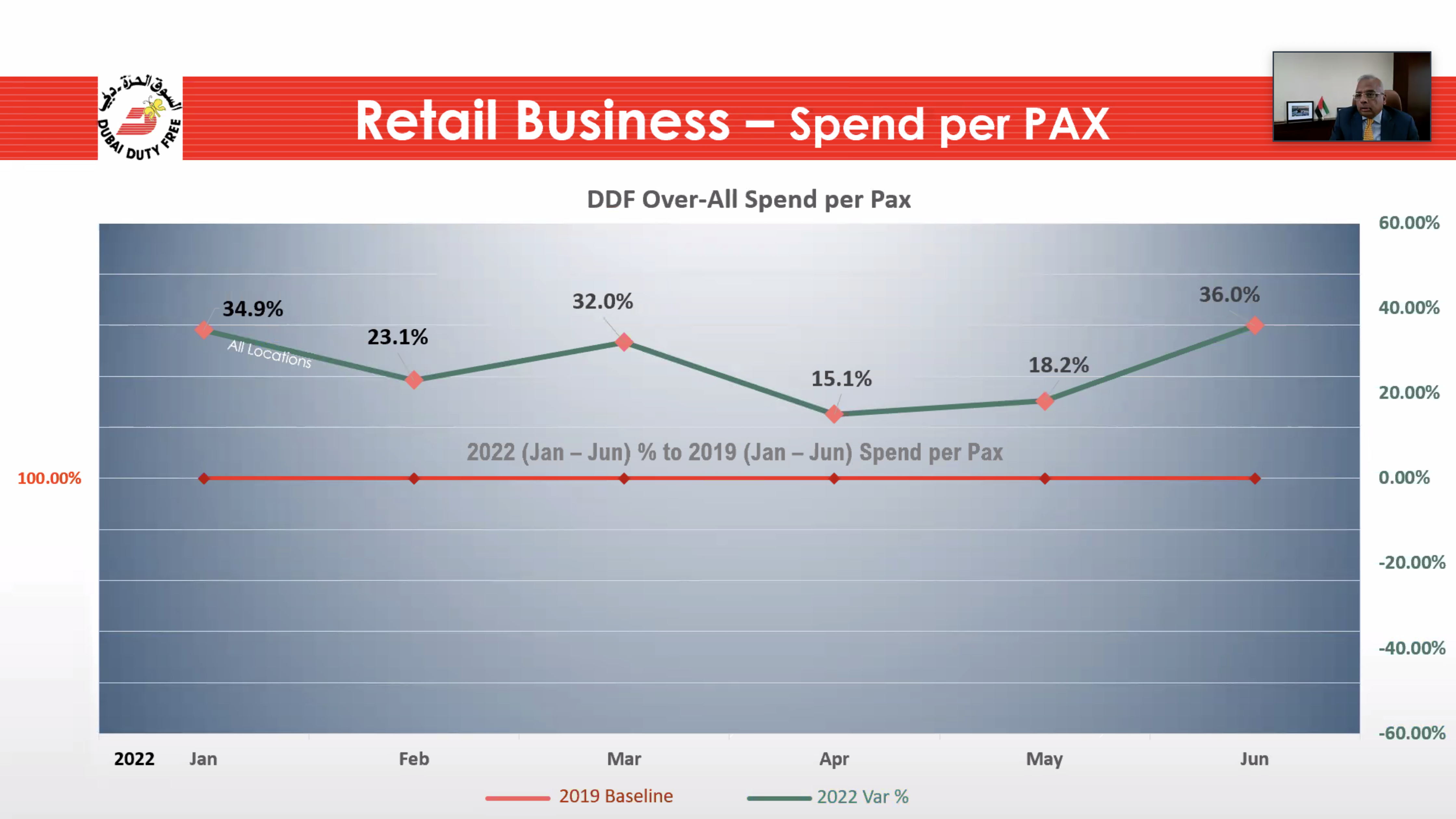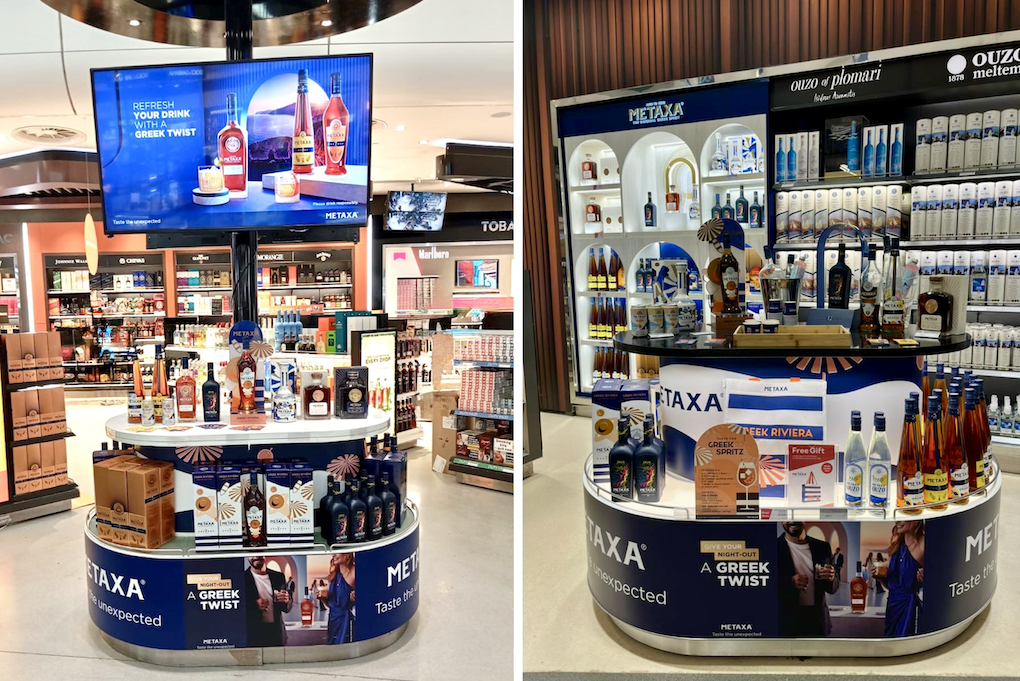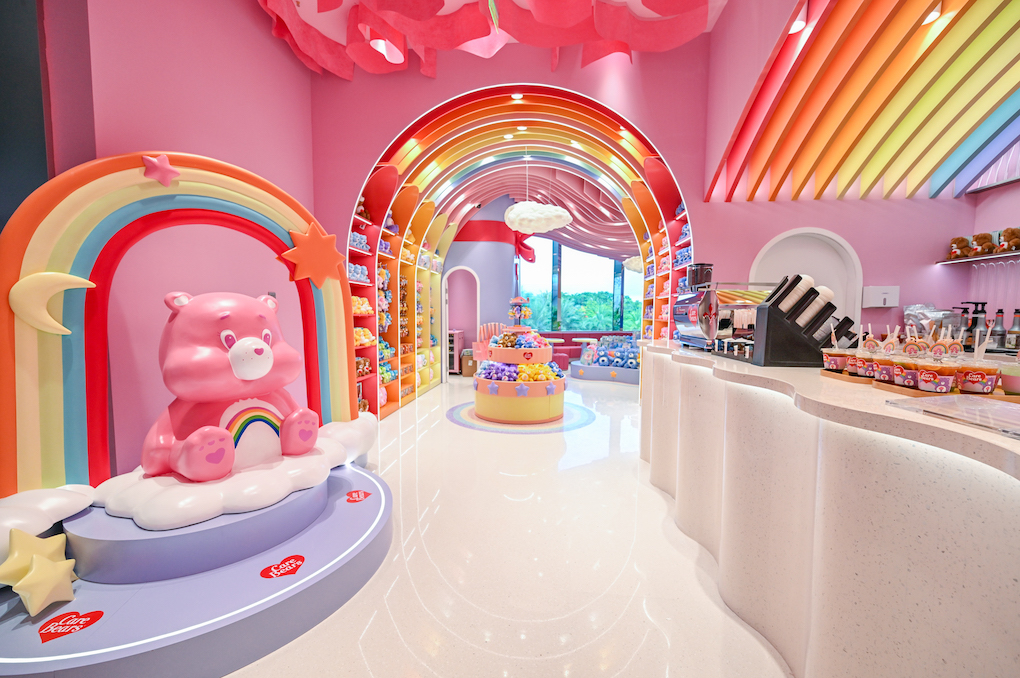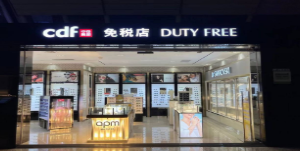MIDDLE EAST AND AFRICA. In a webinar hosted on Tuesday by the Middle East and Africa Duty Free Association (MEADFA), speakers underlined the importance of travel retail within the tourism ecosystem, as the global travel industry continues its recovery.
World Tourism Organization (UNWTO) Regional Director – Middle East Basmah Al Mayman and Dubai Duty Free (DDF) Chief Operating Officer Ramesh Cidambi respectively gave highly-encouraging state of the tourism and travel retail industry addresses, both strongly acknowledging the intrinsic links between the sectors.
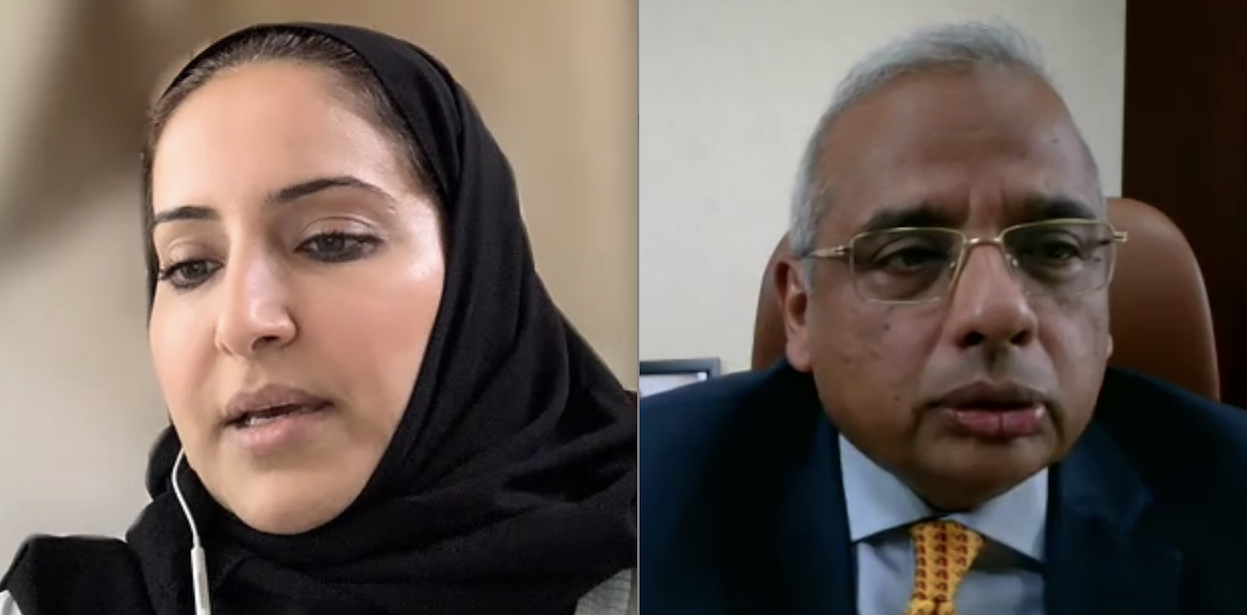
The online session was introduced by MEADFA President Sherif Toulan and moderated by Hume Brophy Account Director Antoine Clement.
Setting the scene, Toulan emphasised the importance of the travel retail industry to the Middle East and Africa region and the wider tourism industry, noting that it accounts for more than 70,000 jobs.
“The tourism sector is continually evolving with new generations considering travel and the vast majority of these trips entail significant retail activity” – UNWTO Regional Director – Middle East Basmah Al Mayman
He said: “The duty free and travel retail industry contributes hugely to tourism in our region and plays a crucial role in the functioning of the tourism value chain, from the economic contribution to airports to the trusted retail experience that consumers have grown to expect.
“It is of systematic importance to the African and Middle Eastern tourism sector. Furthermore, decision makers need to understand that revenues generated by duty free and retail are critical to the financial and economic well-being of the region’s transport infrastructure.”
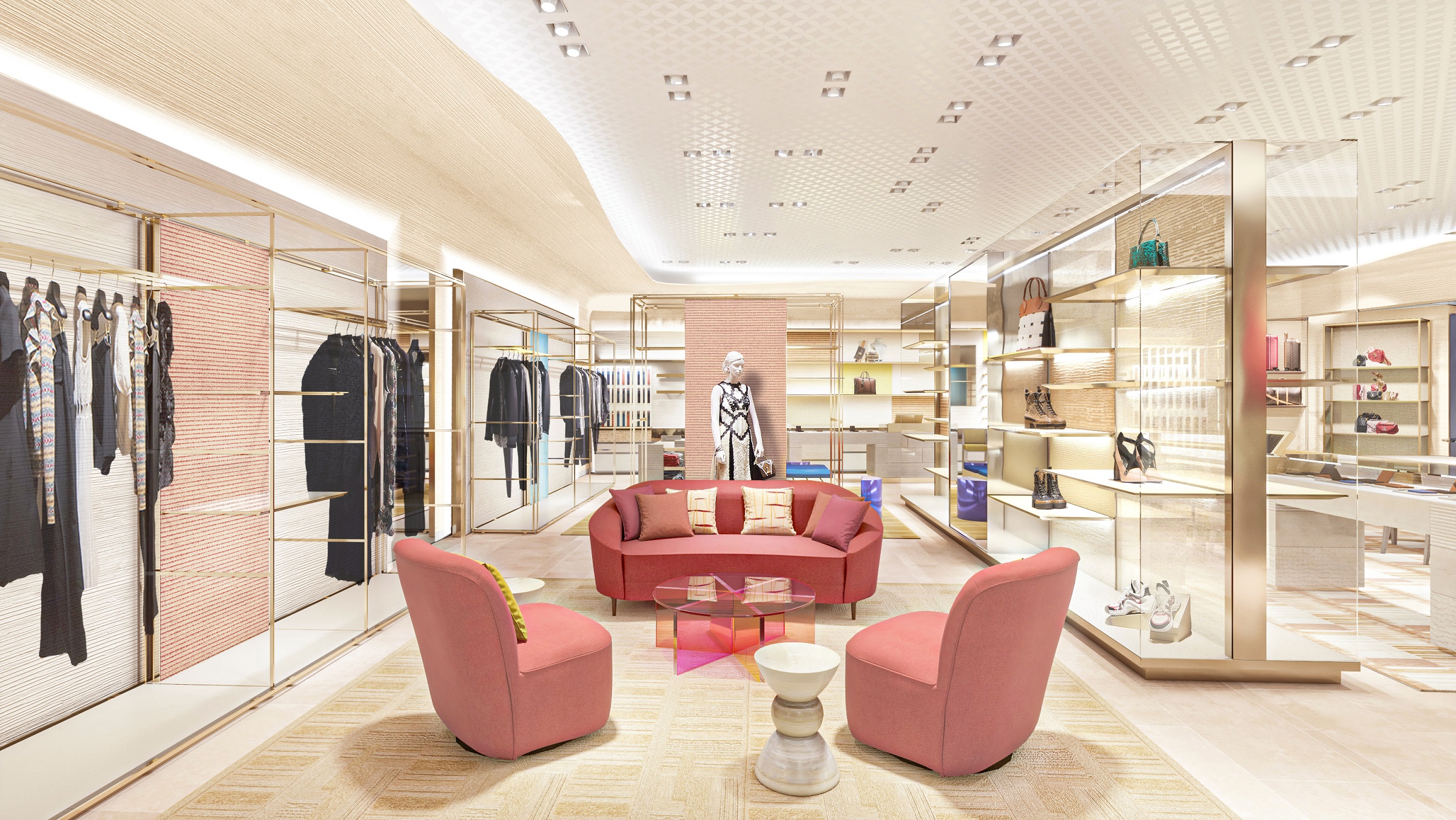
Al Mayman noted an accumulated global loss of US$3.5 trillion in tourism income globally for the period of 2020-2021. Emphasising the key role of tourism worldwide, she said: “Tourism means jobs, poverty eradication, gender equality and the protection and promotion of our natural and cultural heritage. The recognition of the importance of potential contribution of tourism and national development strategies and in the global development agenda is crucial.”
Of the important role of the duty free industry, she said: “Tourism represents a high percentage of the GDP of many countries, which has a significant economic impact. This is the case in many countries of the Middle East, where we all believe that duty free is a very prolific business [working in] parallel to tourism.
“When there is a crisis you shouldn’t put the brakes on everything. Any crisis – even the pandemic – eventually has to come to an end.” – Dubai Duty Free Chief Operating Officer Ramesh Cidambi
“The tourism sector is continually evolving with new generations considering travel and the vast majority of these trips entail significant retail activity.”
She added: “Unfortunately, repeated lockdowns and the closing of international borders for a longer time and the global outbursts of the virus have resulted in the revenue plunge [for the travel retail industry] during the period of 2020 to 2021.
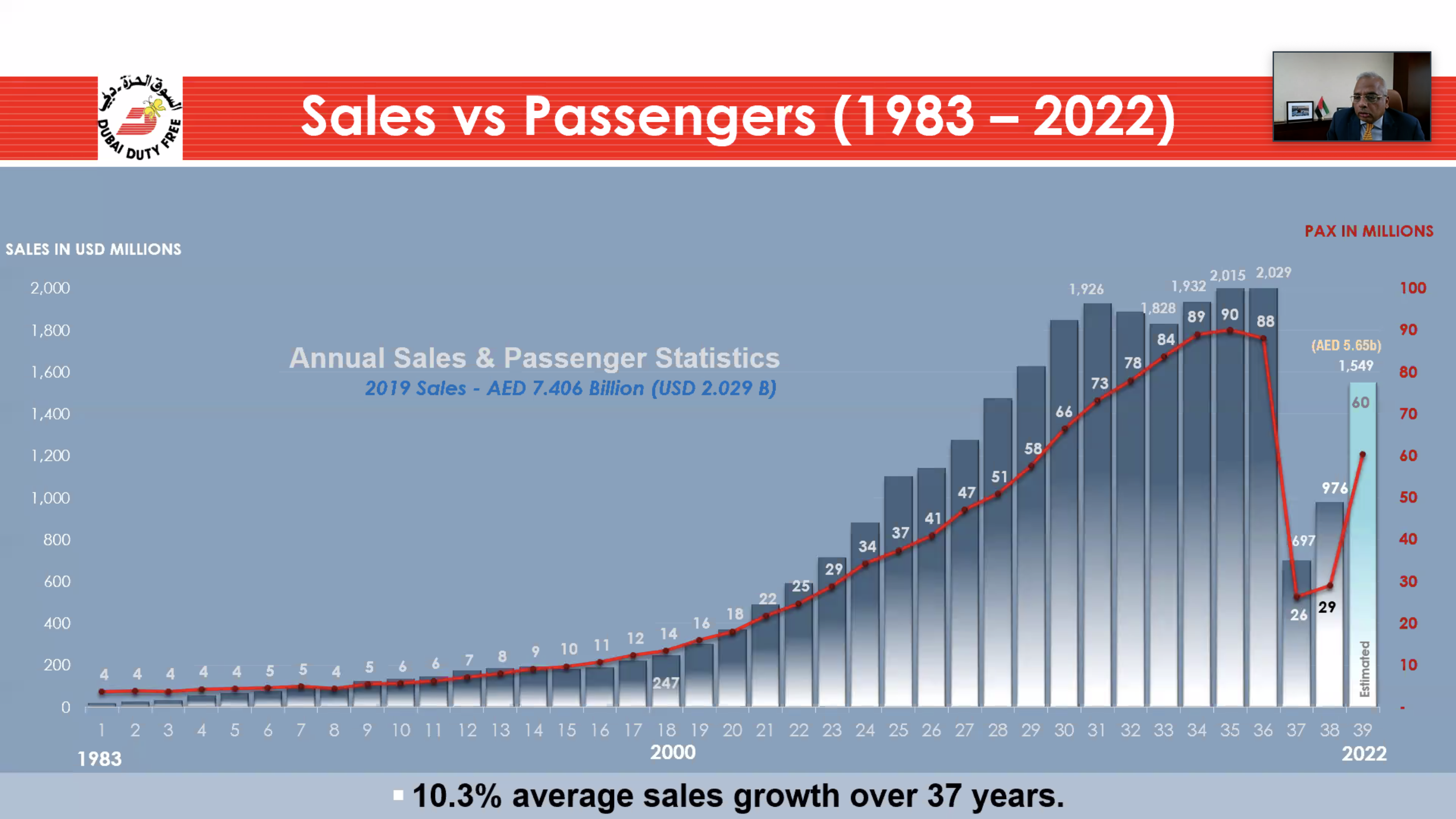
“Duty free and travel retail generates necessary revenues for the travel, tourism, aviation and maritime industries – we are confident that the market is on the recovery path.”
Al Mayman praised the travel retail industry for how it is innovating and presenting a high-quality shopping offer in locations such as Dubai International, and also airports in Madrid, Cairo, Jeddah and Riyadh, all of which she has recently passed through on her travels.
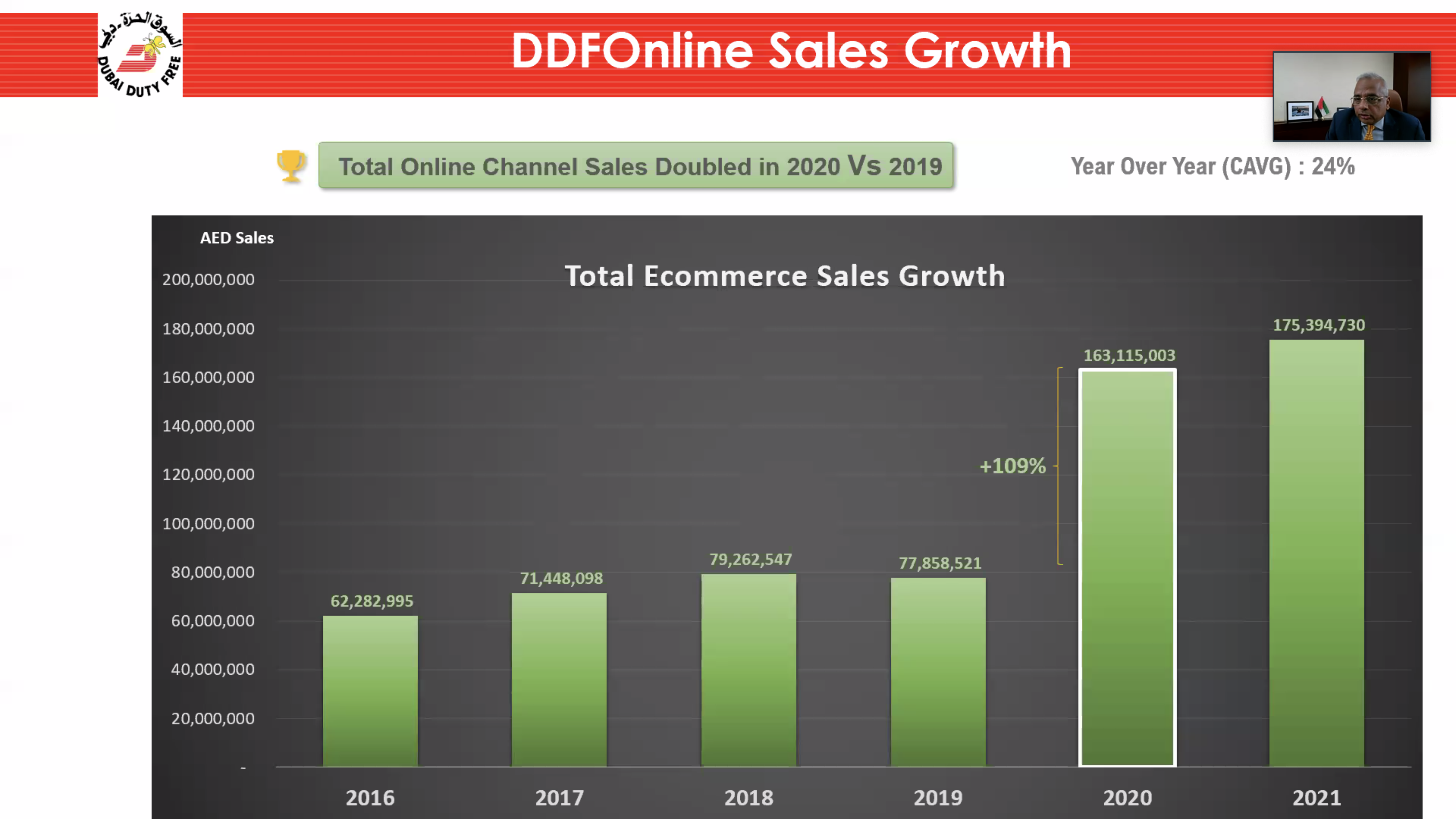
On the theme of correlation between travel retail and the wider tourism industry, Cidambi praised the Dubai Department of Economy and Tourism and its affiliate organisation Dubai Corporation for Tourism and Commerce Marketing (DTCM).
He noted that they played a key role in the revival of tourism in the emirate and for helping to restore the fortunes of DDF, which he had earlier charted in a detailed presentation.
He said: “The work that the DTCM is doing in terms of promoting Dubai as a tourist destination is absolutely fantastic. Our collaboration really is an understanding of what they’re doing, having an insight into the strategy in terms of marketing the destination, and then being prepared for the effects of that strategy.
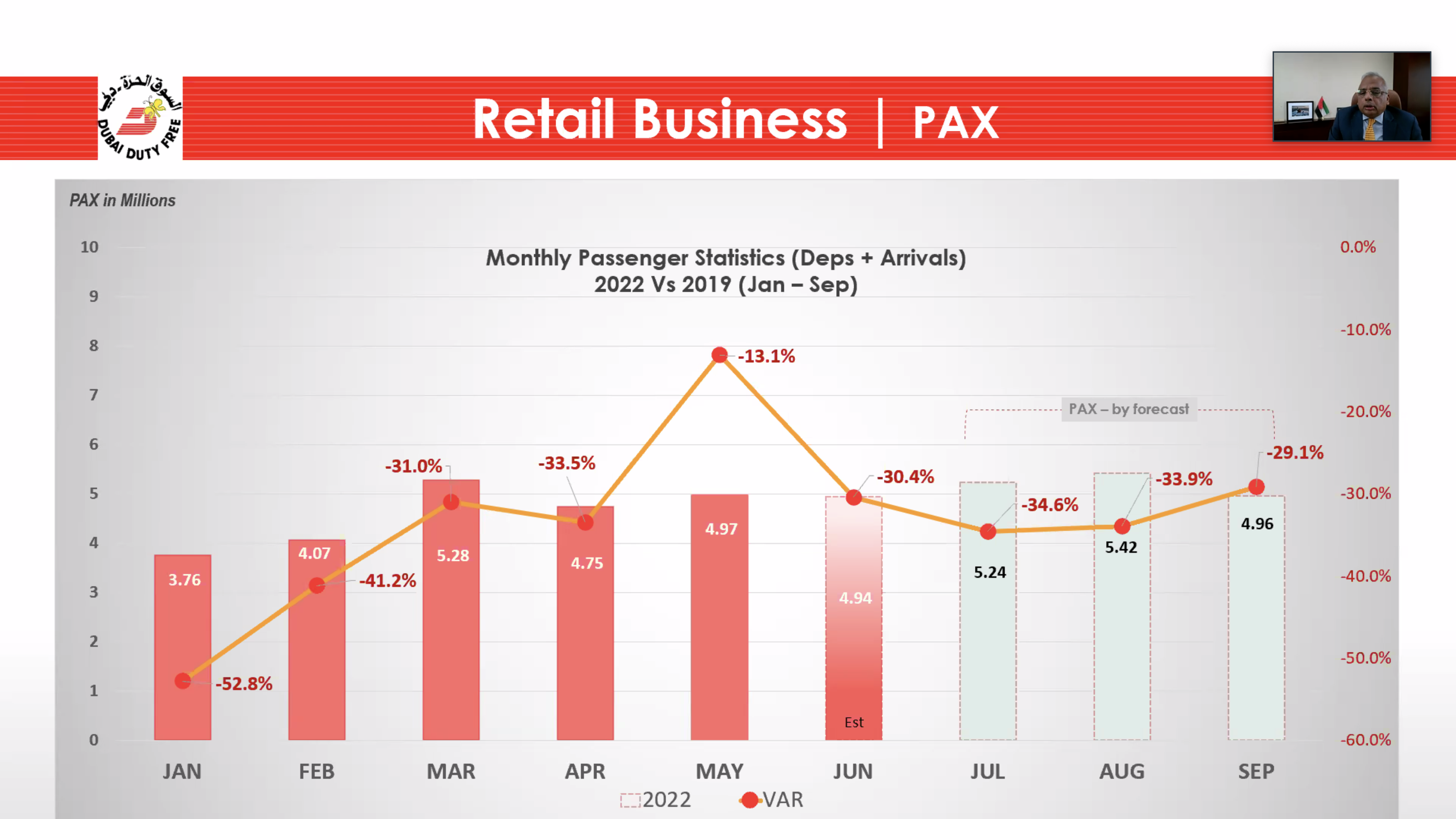
“We have to be aligned with them in terms of their efforts to bring people in, and we take advantage of it when they arrive. We contribute by being an attractive place for shoppers, and to provide that service to passengers.”
He added: “A lot of the money that we make goes back into the development of the infrastructure at the airport and making the airport better for passengers coming in so that they have a more pleasant experience. There’s a symbiotic relationship between tourism and travel retail.”
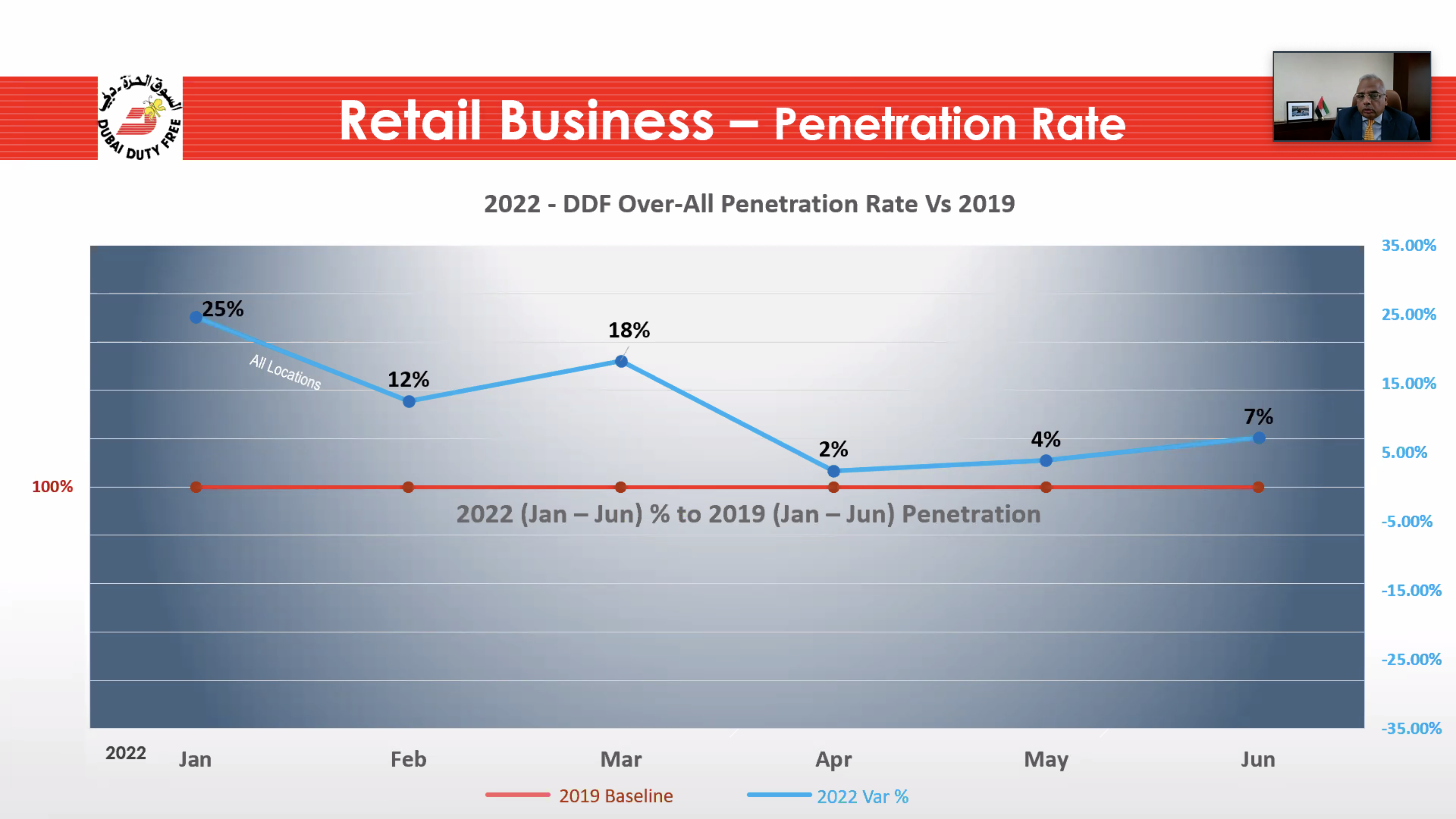
In his presentation, Cidambi revealed a projection of 60 million for the number of passengers expected to pass through Dubai International Airport across 2022 and estimated DDF revenues of US$1.55 billion. That figure will be some way short of the US$2 billion-plus generated in pre-pandemic 2019 but well over double the US$697 million recorded in 2020.
Assessing the pace of revenue recovery in the first six months of 2022, Cidambi said: “The reality has been that in the months from January to June, our recovery has been stronger than what the passenger number has been – typically more than ten percentage points better. Currently, we have recovered 80% of our business for the year to date from January to June, whereas the passenger recovery is about 68% [of 2019 levels].”

He said he is confident that this trend will continue through the coming months and that ratios of shoppers to passengers and spend per pax will remain well above levels recorded in 2019.
While acknowledging that the lack of Asian passengers continues to significantly hit revenues, Cidambi noted that spend by passengers from all other regions is rebounding strongly. “All of them have pretty much recovered to the 2019 levels for the first six months of this year,” he said. “We are pleased that the recovery is more or less widespread across all the [non-Asian] geographies that we deal with.”
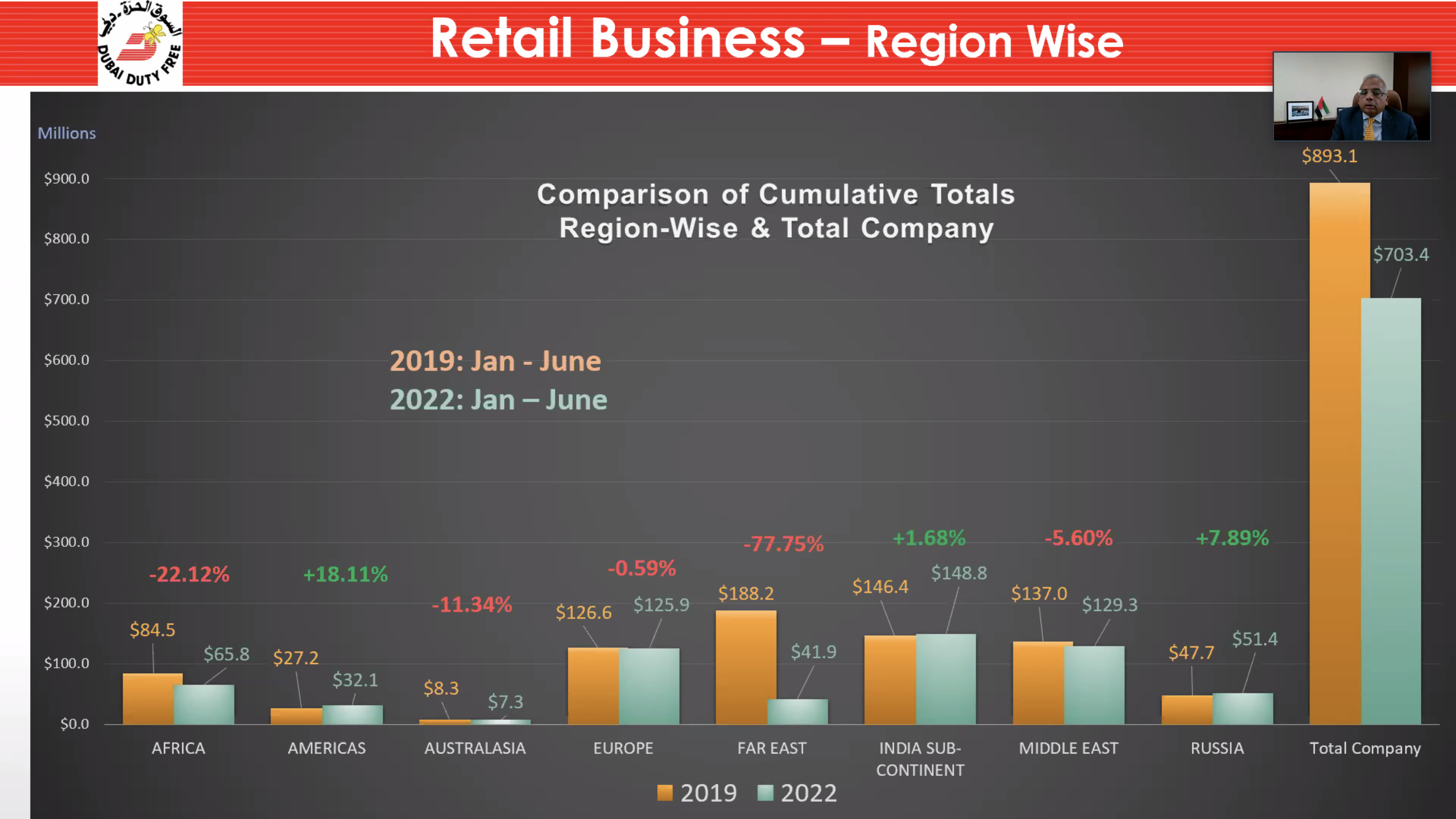
Assessing the performance of product categories in the first six months of 2022, Cidambi noted a sharp rise in the performance of the fashion segment against 2019. Fashion accounted for 6% of total business in 2019 and has shot up to 13% in the first half of this year, which he credited to recent openings from big-name fashion brands such as Louis Vuitton.
Looking ahead, Cidambi said: “In summary, I would like to say that we are expecting a strong summer – July, August, September, we think will be very good. And we think that the fourth quarter will be fantastic.

“With the football in Qatar, the great weather in Dubai during the winter, and all the initiatives we have seen to encourage people to come to Dubai, all of that will help the traffic.
“Any further relaxation of travel restrictions in Asia will help the east to west flows get stronger, and help the transit passengers grow. So even for a professional worrier like me, I think the outlook is very good for the next six months.”

Following his presentation, Cidambi was asked how Dubai Duty Free has positioned itself so effectively to take advantage of resurgent passenger numbers, given all of the difficult challenges the travel retailer has been through in the past two years.
He replied: “The loss of passengers, and particularly the Chinese passengers [which pre-pandemic accounted for 17% of DDF business – Ed], happened in an instant. Coping with that required us to do different things over a period of time and the impact was mainly in brand areas like watches, cosmetics and fashion. The Chinese passengers [previously] accounted for 35-40% of the business of some of the brands.”

He said the retailer dealt with these challenges in two ways. Firstly, by the purchasing department’s hard work in reducing inventory by about 50%, and secondly by continuing with planned retail development, despite the huge fall in passenger numbers.
“In June of 2020, we had 105,000 passengers in the whole month. To put that in context, we expect that number to be five million in 2022. But [at that time] we continued with all the investments that we were making in retail. We renovated our food shops, we built a new gold shop, we did the work that was needed to prepare for the arrival of Louis Vuitton, Cartier and Dior, those kinds of projects. We didn’t stop.
“And that is a reason that when the passengers came back, eventually we were able to take advantage of it. That is a lesson for all of us in travel retail, that when there is a crisis you shouldn’t put the brakes on everything. Any crisis – even the pandemic – eventually has to come to an end.”




